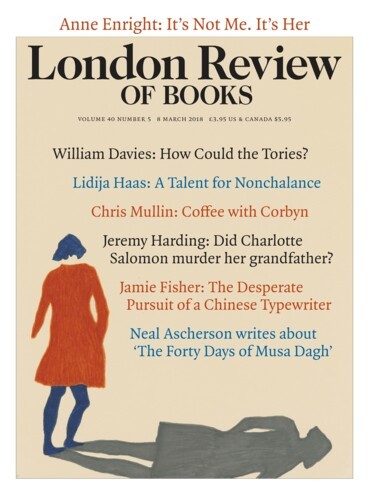à mon pote Jules
merde en croûte,
merde en daube,
merde du pays,
merde d’antan.
merde de province,
pâté de merde,
folie de merde
(merde boulangère).
merde Chantilly,
merde de Paris,
merde anglaise,
putain de merde.
merde longue durée,
merde d’occasion,
merde maison,
merdorama!
merde d’Auvergne,
merde de Brest,
merde de souche,
merde magnanime.
merde marinière,
merde montagnarde,
merde de joie,
merde du jour.
merde comprise,
merde maternelle,
confit de merde,
merde à l’ancienne.
merde de ma tante,
merde vierge extra,
merde de chez nous,
la grande merde.
la sainte merde,
la merde perdue,
la merde c’est moi.
vive la merde!
Send Letters To:
The Editor
London Review of Books,
28 Little Russell Street
London, WC1A 2HN
letters@lrb.co.uk
Please include name, address, and a telephone number.

